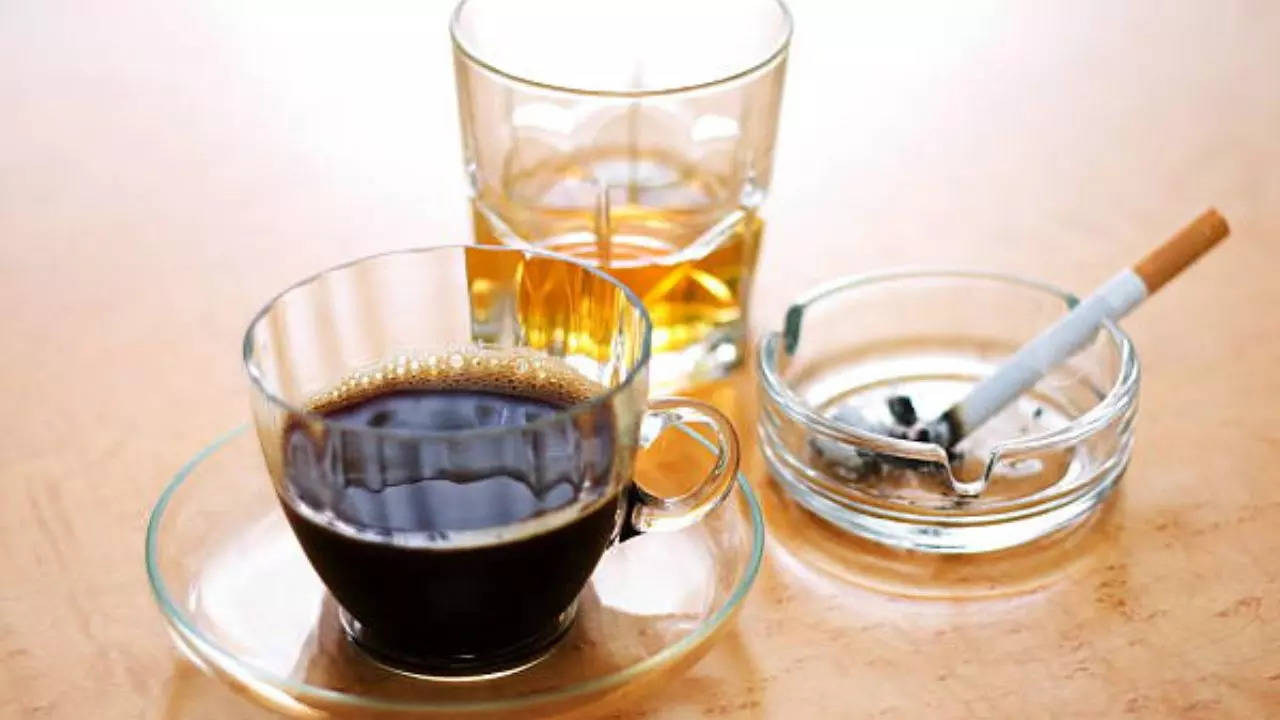-
news
-
Health
-
Diet
Expert says removing these two things from your daily diet can help you recover from winter viruses faster
As Britain prepares for winter, experts have warned against alcohol and caffeine during illness, citing the dehydrating effects. NHS GP Dr David Nicholls recommends hydration and a protein-rich diet for faster recovery. With fears of a “quadruple pandemic” of COVID-19, flu, RSV and norovirus, health officials emphasize vaccinations and responsible antibiotic use.

Expert says reducing these two things from your daily diet can help you recover faster from winter viruses (Image credit: iStock)
As Britain prepares for winter, health experts are urging people to make lifestyle changes to ward off seasonal illnesses. NHS GP Dr David Nicholls has warned against consuming alcohol and caffeine during the period of illness, stressing their dehydrating effects. Speaking to Bella, Dr Nicholls advised, “Your body uses more energy fighting infection, so it’s important to increase water intake. Avoid alcohol and caffeine – anything that dehydrates you won’t help with a quick recovery.”
Dr Nicholls also highlighted the importance of a balanced diet in preventing and combating infections. “When you have flu or Covid, it is common to lose your appetite. However, eating high-protein foods can increase energy and speed up recovery,” he explained.
The threat of ‘quadrilateral’ is looming
The warnings come amid fears of a “quadrupledemic,” a term coined by experts to describe the simultaneous surge of four diseases: COVID-19, flu, respiratory syncytial virus (RSV), and norovirus. GP Dr Roger Henderson previously warned in The Mirror about the potential strain on the NHS. “When these infections overlap, the risk increases, especially for the elderly, young children and people with existing health problems,” he said.
Superintendent Pharmacist Carolina Goncalves echoed these concerns, warning that overlapping outbreaks could lead to longer disease cycles due to weakened immune systems, seasonal factors and increased indoor gatherings.
Norovirus, in particular, is a significant threat. “Dehydration is one of the most serious risks associated with norovirus,” Goncalves said. Symptoms such as dizziness, confusion, dark urine or less urination require immediate medical attention.
Growing concern over antibiotic resistance
The rise in antibiotic-resistant infections has further complicated the public health landscape. According to SurreyLive, the issue has attracted the attention of the United Kingdom Health Protection Agency (UKHSA).
Professor Dame Jenny Harries, Chief Executive of the UKHSA, underlined the importance of vaccination and appropriate antibiotic use. “To prevent infection, first get the vaccination you are eligible for,” he urged. “Take antibiotics only if prescribed by a health care professional. Abuse jeopardizes not only your health but also the health of future generations.”
stay healthy this winter
With the dual threat of seasonal diseases and antibiotic resistance, experts recommend:
– Avoid alcohol and caffeine to prevent dehydration.
– Stay hydrated by drinking plenty of water.
– Boost nutrition with high-protein foods to aid recovery.
– Getting vaccinated against flu and Covid-19.
– Practicing hygiene to reduce the spread of the virus.
As the NHS prepares for another challenging winter, these measures could make a significant difference to keeping communities healthy and resilient.
Get the latest news live on Times Now with breaking news and top headlines from around the world on diet, health and more.


